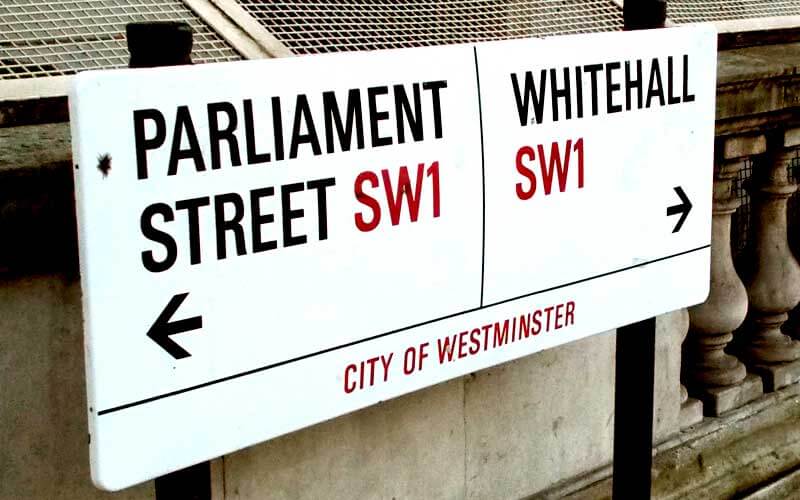Parts of the rail, bus and coach industries are likely to be able to continue to use inaccessible vehicles for years to come, after a “worrying” government announcement that it was planning a fresh series of exemptions from transport access laws.
The exemptions discussed in a letter from transport minister Baroness Vere relate to buses and coaches used to provide home-to-school services for disabled students, and those used as replacement vehicles when rail services are disrupted.
The Public Services Vehicle Accessibility Regulations (PSVAR), introduced more than two decades ago, mean that all such vehicles should have complied with the regulations by 31 December 2019.
But because of the industry’s failure to prepare for that date in advance by ensuring that it would have suitable access to accessible vehicles, ministers have had to issue a series of temporary exemptions.
They have already handed providers four temporary exemptions that mean train operating companies are still allowed to use older buses and coaches for rail replacement purposes, even if those vehicles do not comply with PSVAR.
Other exemptions have been offered to those providing home-to-school services, including local councils and schools.
Now Baroness Vere, the minister for roads, buses and places, has written to industry chief executives to tell them the government is planning to offer further exemptions.
She told them PSVAR had “revolutionised disabled people’s access to local buses and long-distance coaches” and that it was “unacceptable that, two decades after their introduction, a lack of compliant coaches continues to prevent disabled school pupils and railway passengers from travelling on the same services as non-disabled people”.
She added: “It cannot be right that in 2021 disabled people can still be required to use segregated services regardless of their wish, or otherwise, to do so, and I am determined that this will change.”
She said that local authorities, schools, colleges and transport operators “must focus now on how they can provide services inclusively rather than seeking to avoid their legal obligations”.
But she claimed that continuing exemptions “cannot be avoided until there are sufficient compliant vehicles to meet demand” and that she had asked Department for Transport (DfT) officials to develop plans for new “medium term exemptions” to begin from next year, which will likely focus on measures relating to wheelchair accessibility of buses and coaches.
These measures appear to apply to home to school services, but the minister said that arrangements for rail replacement exemptions would be passed to train operating companies through the Rail Delivery Group industry body.
She claimed the exemptions were “essential to enable vital services to run” but “must not be used as a licence to discriminate”.
Disabled campaigner Doug Paulley, who has played a key role in holding the industry and ministers to account over PSVAR, said he was particularly concerned over the possible “medium term” exemptions and the “worrying” lack of details, while he said ministers were yet again “moving the goalposts”.
In her letter, Baroness Vere said the government was also considering extending PSVAR to vehicles used for private hire work, and preventing companies from removing wheelchair lifts from coaches that are no longer being used for scheduled services.
Paulley said the Labour government had promised to examine extending PSVAR to private hire coaches more than 20 years ago, and successive governments had failed to act, so he did not “hold out much hope that this current government will do anything useful on this”.
DfT said that the government’s national bus strategy, Bus Back Better, had promised to review PSVAR by the end of 2023, and that this work would be informed by regular engagement with the disabled persons transport advisory committee (DPTAC) and a broad range of other stakeholders.
The department also said there were too few PSVAR-compliant coaches to provide one for every home-to-school service, but the medium-term exemptions could be designed to incentivise the use of compliant vehicles.
Those medium-term exemptions will be subject to consultation before coming into force, the department said.
And it said that any further exemptions for rail replacement services would be considered in due course.
A DFT spokesperson said in a statement: “Disabled people should be able to travel as easily and confidently as everyone else, and ensuring vehicles comply with these regulations is an important step in making that possible.
“These temporary exemptions will ensure that vital home-to-school services can continue, but operators must take steps to comply with PSVAR and may not be eligible for exemptions in future if they cannot show their efforts to do so.”
A note from the editor:
Please consider making a voluntary financial contribution to support the work of DNS and allow it to continue producing independent, carefully-researched news stories that focus on the lives and rights of disabled people and their user-led organisations.
Please do not contribute if you cannot afford to do so, and please note that DNS is not a charity. It is run and owned by disabled journalist John Pring and has been from its launch in April 2009.
Thank you for anything you can do to support the work of DNS…

 Government’s ‘weak’ response to damning transport access report puts right to travel in ‘grave danger’
Government’s ‘weak’ response to damning transport access report puts right to travel in ‘grave danger’ Self-driving taxis that are not accessible will be allowed pilot scheme licenses, government suggests
Self-driving taxis that are not accessible will be allowed pilot scheme licenses, government suggests